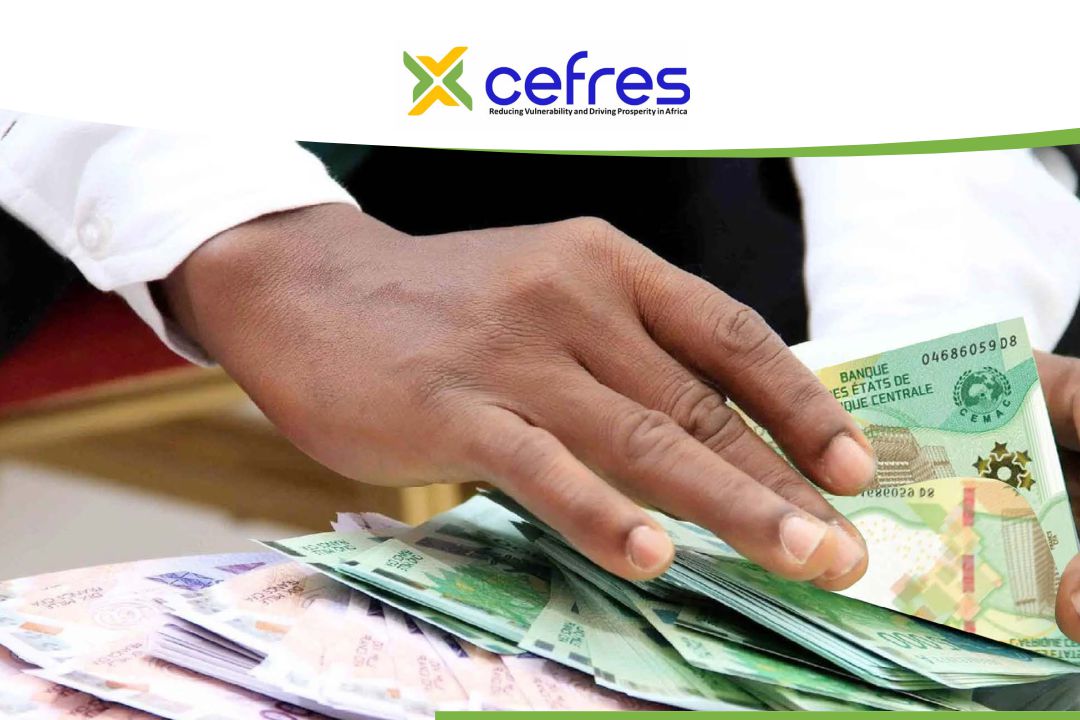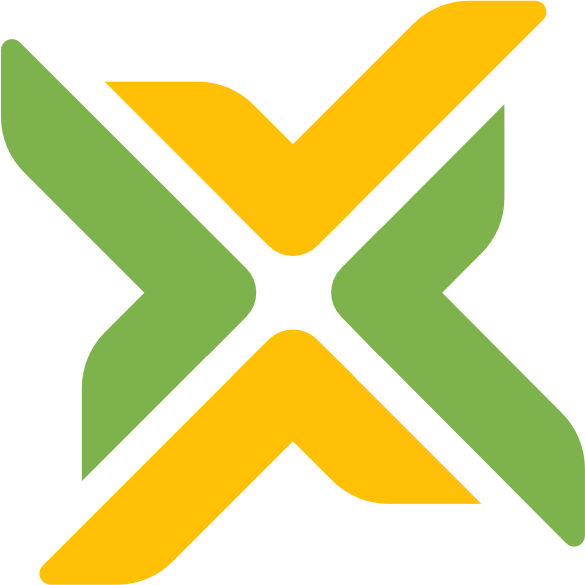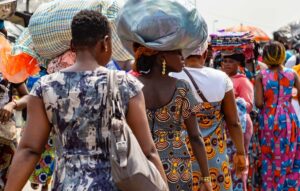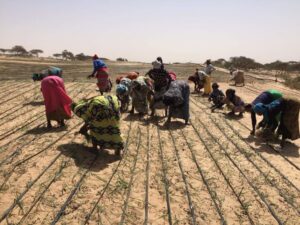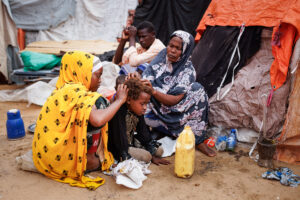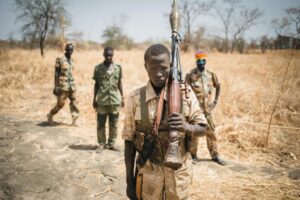Introduction
Economic freedom, defined as the ability of individuals and businesses to make economic decisions without excessive government interference, is a crucial driver of prosperity. According to the Heritage Foundation’s 2024 Index of Economic Freedom, Cameroon’s economic freedom score is 53.6, making its economy the 121st freest in 2024. The country’s score on economic freedom is lower than the global average (58.6) and slightly above the Sub-Saharan African regional average (52.4). Its performance in terms of economic freedom in 2024 remains poor, primarily due to weaknesses in the legal framework for property rights, which offers limited protection against expropriation and features an unreliable legal system. Corruption is widespread in the country, affecting various sectors and hindering economic activities. Additionally, the business environment is severely constrained by bureaucratic inefficiencies and a lack of transparency. In light of the above, the country’s limited capacity to uphold a certain level of economic freedom has hindered its ability to embark on a path of sustainable growth, despite its abundant natural resources and a young, dynamic workforce. It has become imperative to take action to effect change in this area, and several measures can be implemented to achieve this goal. This includes empowering individuals and businesses to make economic decisions without excessive government interference. This paper outlines key reasons why economic freedom is important in Cameroon, the primary challenges and obstacles that persist, and the main recommendations for a shift in positioning by various stakeholders.
Benefits of Promoting Economic Freedom in Cameroon
The promotion of economic freedom in Cameroon offers numerous benefits that can significantly impact the country’s development and the well-being of its citizens. Key advantages include enhanced economic growth, increased foreign investment, poverty alleviation, increased innovation, strong entrepreneurship, improved governance, individual empowerment, heightened competitiveness, reinforced property rights, facilitated trade, and higher living standards.
Enhanced Economic Growth
When individuals and businesses are free to operate without excessive regulation, they are more likely to invest, innovate, and develop, which in turn fosters economic growth. African countries that have embraced policies promoting economic freedom have experienced significant growth rates in recent years. Notably, according to the Heritage Foundation (2024), Cape Verde’s economic freedom index has increased from 60 (10th in Africa in 2018) to 62.9 (3rd in Africa in 2024), while its economic growth rate has risen from 3.7% in 2018 to 5.15% in 2023. The country has successfully simplified administrative procedures and reduced barriers to entry for businesses. Additionally, the Cape Verdean government has strengthened the legal and regulatory framework for public-private partnerships (PPPs), attracting private investment in infrastructure and public services, contributing to the modernization and expansion of these sectors. In Cameroon, similar reforms could yield comparable results, unlocking the potential of various sectors, including agriculture, manufacturing, and services, and stimulating overall economic development.
Poverty Alleviation
Economic freedom is a powerful tool in the fight against poverty. When individuals have the liberty to start and grow businesses, they can create jobs and generate income, lifting themselves and others out of poverty. In Ethiopia, recent economic reforms implemented by the central bank have significantly reduced the poverty rate by increasing economic opportunities for citizens. In July 2024, the country announced a major reform of its foreign exchange regime, allowing commercial banks to freely set the exchange rate of the national currency, the birr (Central Bank of Ethiopia, 2024). This reform, which also ends strict exchange controls that artificially overvalued the birr, is intended to address long-standing economic distortions and promote a more competitive and efficient market. The liberalization of the exchange rate regime is also expected to attract more foreign investment and enhance the country’s trade balance. In Cameroon, similar economic freedom initiatives can lead to a more efficient allocation of resources, ensuring that goods and services are produced and distributed in a manner that best meets the needs of the population. These initiatives could encourage individuals to take risks and pursue innovative ideas, leading to the development of new products, services, and technologies.
Improved Governance
Where transparency and the rule of law prevail, businesses can thrive without fear of corrupt practices. Botswana serves as a prime example of an African nation where improved governance and low levels of corruption have fostered sustained economic growth. According to the Heritage Foundation, Botswana ranked second in Africa for economic freedom in 2020 and maintained this position in 2024. The government of Botswana has enacted new laws to enhance transparency and access to information. Enacted in 2024, the Freedom of Information Act requires public institutions to disclose information regarding their activities and finances. This measure aims to increase the accountability of public officials and empower citizens to monitor government actions. In the case of Cameroon, despite significant efforts to combat corruption, the issue remains endemic. In 2023, corruption cost the Cameroonian State over 114 billion CFA francs. This financial loss stems from various corrupt practices in both the public and private sectors. In 2023, Cameroon’s National Anti-Corruption Commission (CONAC) received 7,548 reports of corrupt practices, resulting in 35 rapid interventions and 16 in-depth investigations involving 69 billion CFA francs. Additionally, it reported that 43 companies were excluded from public contracts due to corrupt activities. The National Financial Investigation Agency (ANIF) also submitted 447 reports on suspicious fund movements, totaling 1,665 billion CFA francs. Botswana’s experience illustrates how promoting economic freedom can enhance accountability, strengthen institutions, and reduce corruption—all of which contribute to a more stable and predictable business environment, providing better opportunities for all citizens.
Empowering Individuals and Strengthening Businesses
Economic freedom empowers individuals by enabling them to make their own economic decisions. This autonomy can lead to enhanced personal and economic independence, facilitating the pursuit of individual goals while improving overall living standards. Such freedom allows individuals to work flexibly and earn a livelihood independently. Consequently, the economy becomes more resilient and better equipped to adapt to changing global conditions, as it fosters competition by eliminating barriers to entry and encouraging companies to innovate and enhance their efficiency. Furthermore, when individuals and businesses possess clear and enforceable property rights, they are more inclined to invest in and develop their assets. This, in turn, attracts investments, optimizes land use, and supports economic development. In 2024, Tanzania implemented several significant land reforms aimed at enhancing land management, strengthening property rights, and attracting investments. The government launched an online platform for land registration, which facilitates access to land information and reduces processing times. By improving transparency and minimizing opportunities for corruption in the land sector, Cameroon can diversify production, increase exports, access new markets, and create greater economic opportunities for businesses and individuals through intensive agricultural practices. Ultimately, the goal of enhancing the quality of life for citizens will be achieved. In summary, when individuals have the freedom to make economic choices, they can better meet their needs and aspirations. In Cameroon, similar initiatives can lead to higher incomes, improved access to goods and services, and an overall enhancement in well-being.
Challenges and Policy Recommendations
Corruption is one of the primary constraints on economic freedom in Cameroon. Its pervasive influence on public administration, the judiciary, and the economy poses a significant challenge, eroding public trust in institutions, distorting market mechanisms, and deterring both domestic and foreign investment. Therefore, it is crucial to persist in implementing anti-corruption measures to foster a fair and predictable business environment.
Weak Institutional Framework: In Cameroon, the institutional system is often ineffective and fragile. Regulatory organizations and enforcement agencies lack the necessary resources and independence for the effective implementation and oversight of economic policies. Consequently, rules and regulations are applied inconsistently, resulting in an unpredictable business environment.
Inadequate Infrastructure: Poor infrastructure, including roads, electricity, and telecommunications, significantly hampers economic activities. Only 48.86% of the 121,873.93-kilometer road network is classified as being in good or fair condition. The national electrification rate is approximately 62%, with rural areas experiencing substantially lower rates. Internet penetration remains low, with only 35% of the population having access to the internet. This inadequate infrastructure increases the cost of doing business and limits access to markets, both domestically and internationally. This presents a significant challenge for small and medium-sized enterprises (SMEs) that do not have the resources to overcome these obstacles.
Limited Access to Finance: According to the 2016 World Bank Enterprise Survey, 44.6% of small-sized enterprises and 25.7% of medium-sized enterprises reported limited access to finance as a major obstacle to their business. Consequently, the financial sector remains underdeveloped, and credit is often expensive and difficult to obtain. This significantly limits the ability of businesses to invest, expand, and innovate. Expanding access to financial services is essential to support entrepreneurship and economic participation.
Legal and Property Rights Issues: According to Cameroon’s Ministry of State Property and Land Tenure, less than 2% of land is registered or titled. Most land is held informally through local arrangements. In fact, the majority of the country’s land is classified as unregistered and governed by law. Weak enforcement of property rights and legal protections can deter investment. Ambiguities in ownership and disputes over property rights create uncertainty for investors. Strengthening the legal framework and ensuring the protection of property rights are essential for promoting economic freedom.
Political Instability: Since 2016, there has been an ongoing conflict between the government and separatist groups in the North West and South West regions of Cameroon. The crisis began with peaceful protests against the marginalization of English-speaking Cameroonians but escalated into violent clashes. This conflict has resulted in civilian deaths and displaced more than 638,000 people internally. In addition to the Anglophone crisis, Cameroon faces threats from Boko Haram and the Islamic State in West Africa Province (ISWAP) in the Far North. The instability has severely impacted civilians, with many facing insecurity and limited access to education and healthcare. Ensuring stability in the country, especially in these regions, is essential for creating a predictable and secure environment where businesses can thrive.
Education and Skills Gap: A mismatch between the skills offered by the education system and the demands of the labor market hinders economic growth in Cameroon. Education plays a crucial role in developing foundational skills necessary for entrepreneurship, including critical thinking, problem-solving, and effective communication. These competencies are vital for recognizing opportunities and addressing challenges in business. Therefore, investing in education and vocational training is essential to prepare the workforce with the skills required for a modern economy.
Conclusion
Promoting economic freedom in Cameroon is essential for achieving sustainable development and enhancing the quality of life for its citizens. By addressing corruption, strengthening institutions, simplifying regulations, improving infrastructure, and increasing access to finance, the country can create a more favorable environment for economic freedom. Tackling these challenges and implementing the necessary reforms will require concerted efforts from the government, private sector, and civil society; however, the rewards will be significant. These initiatives will help unlock the country’s economic potential. By fostering a business-friendly environment, attracting investment, reducing poverty, and empowering individuals, Cameroon can realize its economic potential, build a more prosperous future, and improve the quality of life for its citizens.

